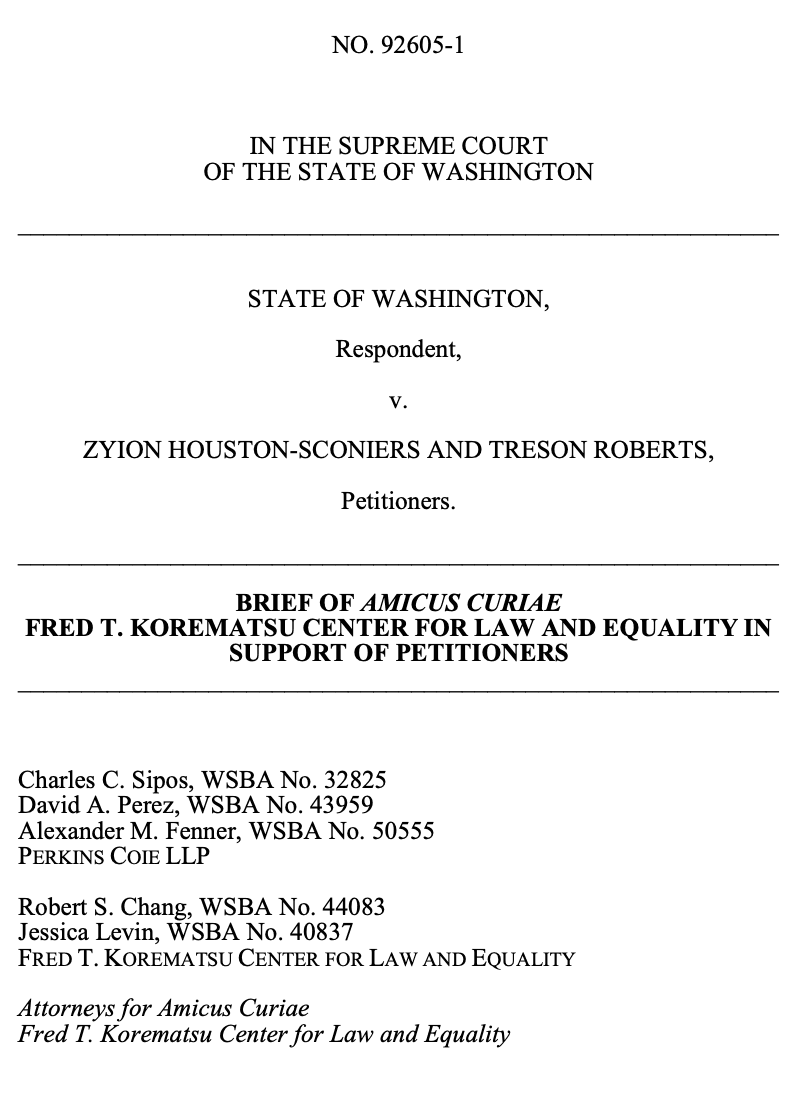
Summary of Argument
Children are different from adults, and two children of the same age can be very different from one another. Over the last decade, both this Court and the United States Supreme Court have recognized that these differences are of constitutional significance, and have thus repeatedly struck down sentencing schemes that do not allow consideration of a defendant’s youthfulness.
Washington’s “auto-decline” statute, in concert with the state’s adult sentencing laws, creates precisely the kind of impermissible scheme that recent case law has rejected. Under the auto-decline statute, a 16- or 17-year-old defendant charged with certain crimes is automatically tried in adult court, with no opportunity to demonstrate that his or her youthfulness and related characteristics make trial as an adult inappropriate. If the teenage defendant is convicted, he or she is automatically sentenced as an adult. In some cases—including this one— the defendant is subject to mandatory enhancements that result in decades- long sentences plainly inappropriate for the vast majority of juveniles.
Even where mandatory enhancements do not apply, a teenage defendant bears the burden to prove that his or her characteristics warrant an exceptional downward sentence, creating a perverse presumption that children are adults until proven otherwise. In either case, juvenile defendants subject to auto-decline face a significant probability of receiving sentences that are disproportionate in light of their youthfulness. At least until substantial new safeguards are enacted for youth defendants sentenced in adult courts, that probability renders the auto-decline statute unconstitutional under both article I, section 14 and the Eighth Amendment.